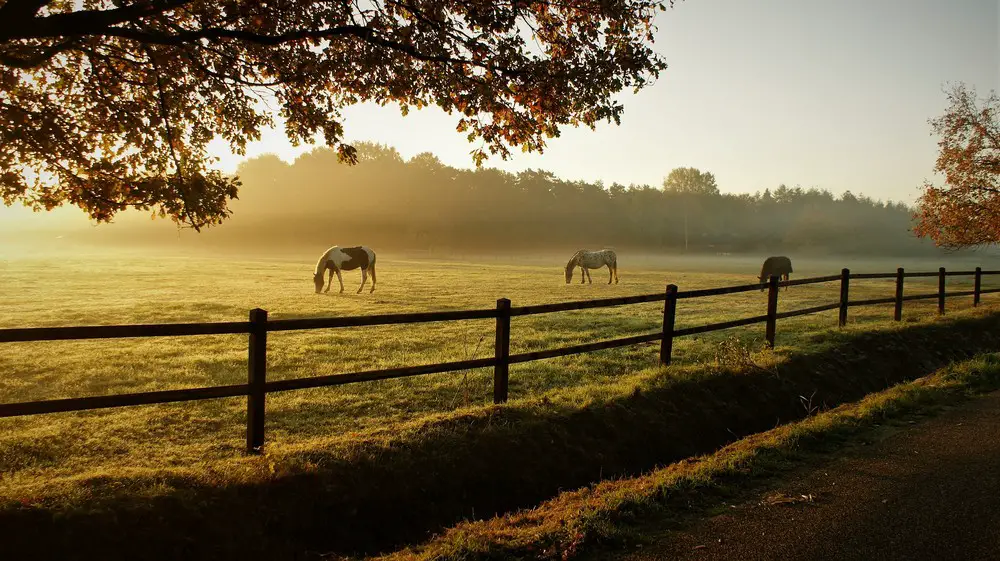Hiring a fencing installer vs DIY – which is best? , Bathroom sanitaryware tips
Hiring a Fencing Installer vs DIY – Which is Best?
9 Feb 2023
Your boundary line is looking a little bare without a fence, and you’re considering building one yourself. But is it worth the time, effort and cost? Yes, you’ll save money but the risk of a subpar job often outweighs the cost savings.
On the other hand, hiring a professional fence installer could be your best bet. They have the expertise to install your fence correctly the first time, saving on potential repair costs long-term.
In this article, we’ll go through reasons on both sides to help you decide which option is best for your fencing project. We’ll look at the costs, time frames and risks associated with each one:
Why to Hire a Pro
You’ll Get a Picture Perfect Installation
A fence, in particular, should be installed with precision and accuracy. Besides a fence’s aesthetic features enhancing your landscape, it’s also responsible for marking your property line and protecting your home.
When you hire a professional fence installer, they bring their experience to the job which most DIYers can’t match. As they’re licensed, it means they understand the rules and regulations when it comes to installation. This also includes ensuring that your fence adheres to all local building codes, as well as any structural and engineering requirements.
Let’s You Focus on Other Home Improvement Tasks
In terms of home improvement, you may be a jack of all trades. As such, you may be tempted to tackle every job yourself. However, multi-tasking often means that you sacrifice quality on one or more of your projects. You’re better off focusing on what you do best and letting a professional handle your fencing needs.
A fencing installer will give you a timeline and stick to it, allowing you to work around their schedule. Contrast this with tackling a DIY project, which could take much longer and can be prone to delays. And if you’re given a deadline by your local council for a fencing project, you’ll want to make sure it’s met on time.
You Have No Idea What You’re Doing
There’s absolutely no shame in admitting that you don’t know what you’re doing when it comes to fencing. It’s a highly specialized trade, and professionals will have the right tools to get the job right. From power saws to cut down panels, to post hole diggers and electric drills, a professional’s toolbox is far more advanced than the average DIYer’s.
When it comes to the installation itself, there are multiple stages involved. Some of these include:
Site inspection – Your installer will assess ground conditions and see if there’s anything that could impact your fence installation
Measuring and layout – This involves marking the location of posts, ensuring they’re correctly positioned in relation to one another. You don’t post too far or near together, as this can compromise the stability of your fence.
Digging holes and Installing Rails – This is where the installation really takes off. It requires an understanding of the right depth, as well as the correct amount of vertical and horizontal support. Your installer will then install rails to the posts and attach the fence panels.
All this adds up to quite a technical project and only a professional (unless you’re skilled) can do it justice. While it’s plausible that you could learn the process, it’s not very time-efficient, and you may still end up with a fence that doesn’t look great.
When to Install a Fence Yourself
You Hate Working Around Other People
When a contractor works in your premises, they’ll need to access certain areas. Once they have access, they’ll unpack their tools and swiftly get to work. If you’re not a fan of having strangers in your home and having to work around them, DIY.
When working alone, you can work at your own pace, and not worry about the contractor’s timeline. This is especially useful if you’re learning the ropes, or want special touches that may take extra time. You can also make changes and adjustments as you go along without having to check in with anyone.
Lastly, you don’t have to go out of your way to be polite to a contractor, as you’re the only one on site. We’re not all sociable after all, and it can be a relief to work alone.
You Enjoy The Process
Most, if not all, DIY enthusiasts enjoy the process of creating and building something themselves. There’s no greater feeling than standing back and admiring your own work, knowing that it was all done with your own hands.
The same cannot be said for when you hire a fencing installer. You are excluded from the process, can’t give tips (they’re the experts after all) and have to wait until it’s done. It can be frustrating not being part of the process, and even more so if you’re paying someone to do it. For many, DIY results and pride go hand-in-hand.
If you find it gratifying to take on a project, then you should go ahead and install your own fence. You’ll learn something new, and have something to show for it at the end. It also allows you to get creative on your own design and push boundaries.
Save Costs
This is the most obvious advantage to DIY installation. Fencing installers generally charge $30-$75, with a 150 linear fence talking about 20 hours to complete. Combine that with the fencing materials and it can total up to a large sum of money.
If you’re on a tight budget, you could do your due diligence, watch some tutorials and install the fence yourself. Youtube in particular is a wonderful resource for DIYers, and it’s filled with lots of helpful videos. There are also online guides and blogs that can give you step-by-step advice on how to install one as well.
However, just remember that a subpar job full of defects may cost you more in the long run. In the end, you’ll need to hire a fencing contractor anyway to fix any mistakes you’ve made.
Fence Installation Company Hire Conclusion
As you can see, there are various reasons to DIY and hire a fencing installer. If you’re confident in your abilities, enjoy the process and want to save money, then DIY is for you. On the other hand, those who want guaranteed results should hire a professional.
In the end, it all depends on your preferences and ability to handle the project. Whichever one you choose, make sure you think it through and plan ahead. That way, you can get the best possible outcome for your fence.
Comments on this Hiring a Fencing Installer vs DIY – Which is Best? article are welcome
Property Designs
Glasgow Architecture Designs – architectural selection below:
50 Bothwell Street Office Redevelopment
Comments / photos for the Hiring a Fencing Installer vs DIY – Which is Best? page welcome



